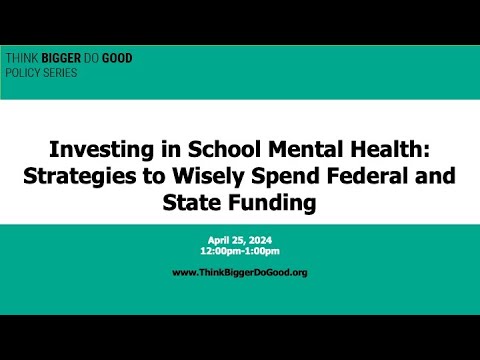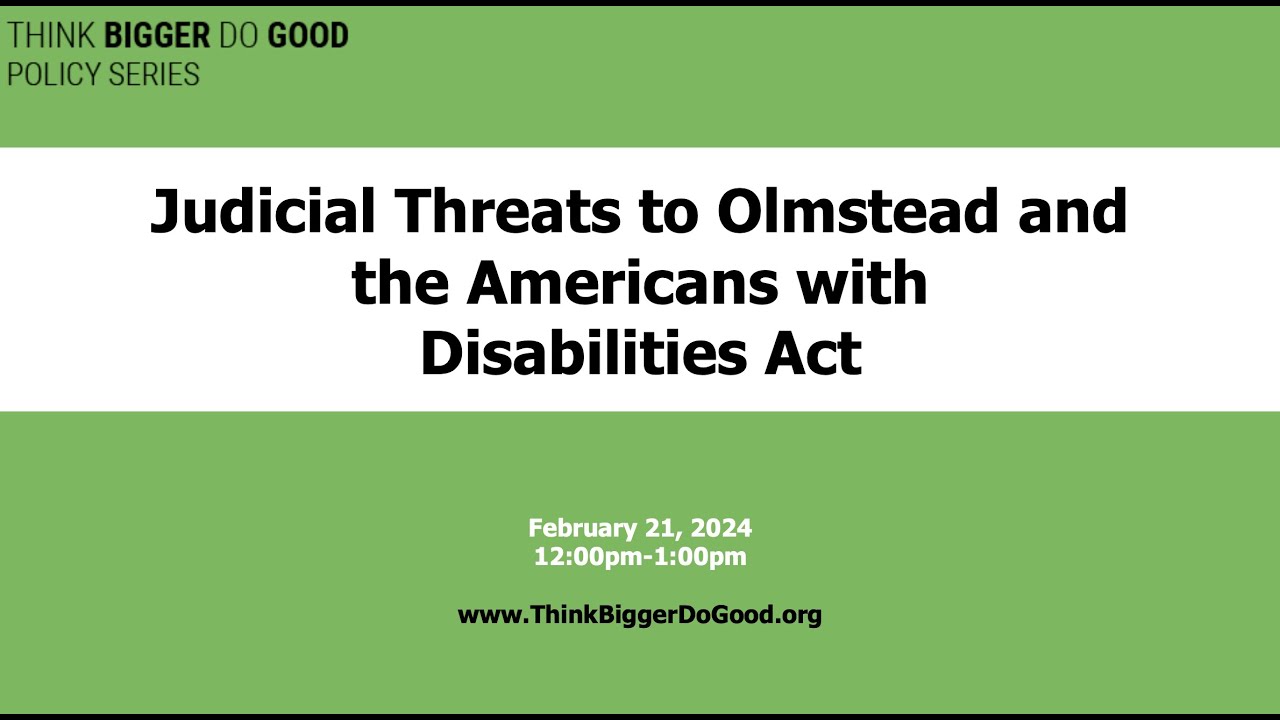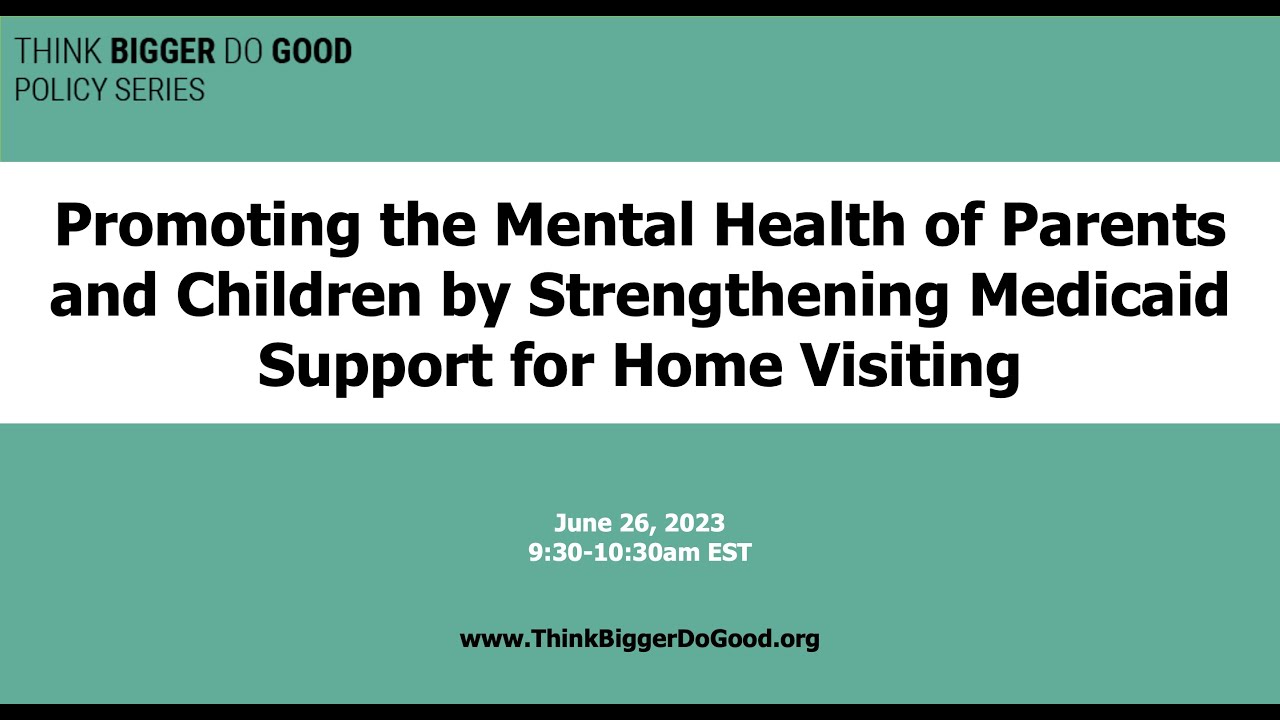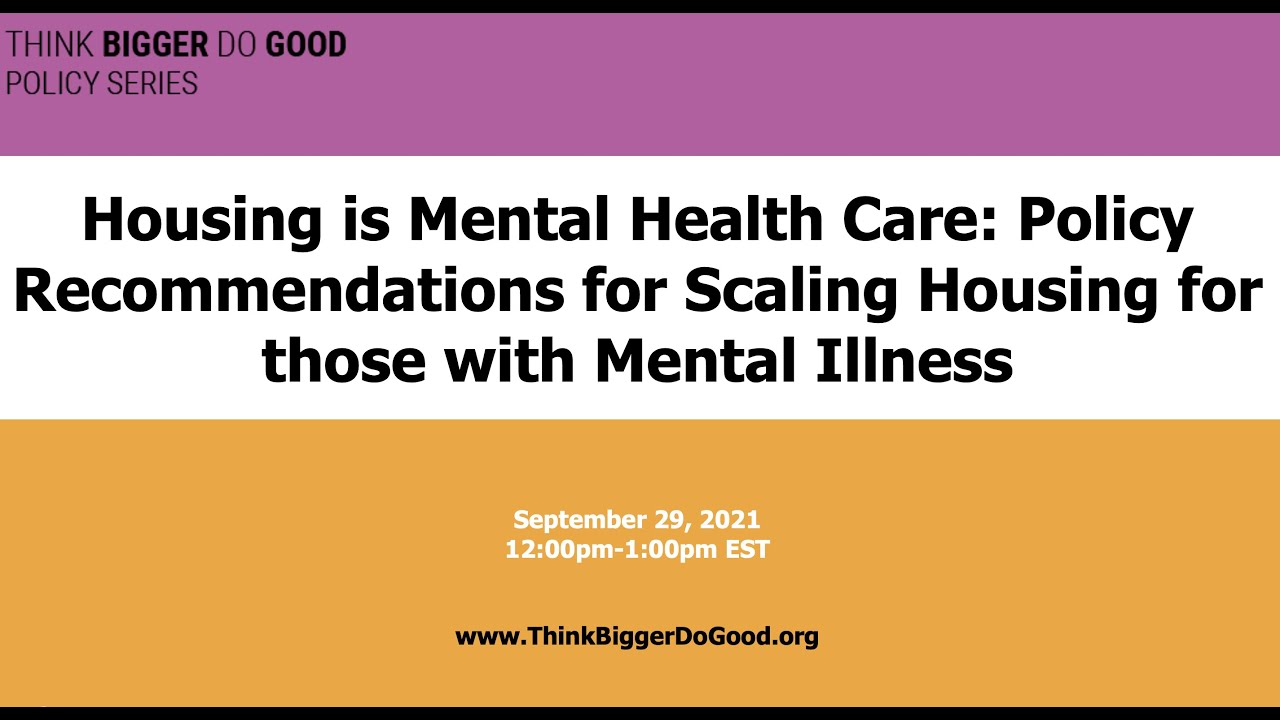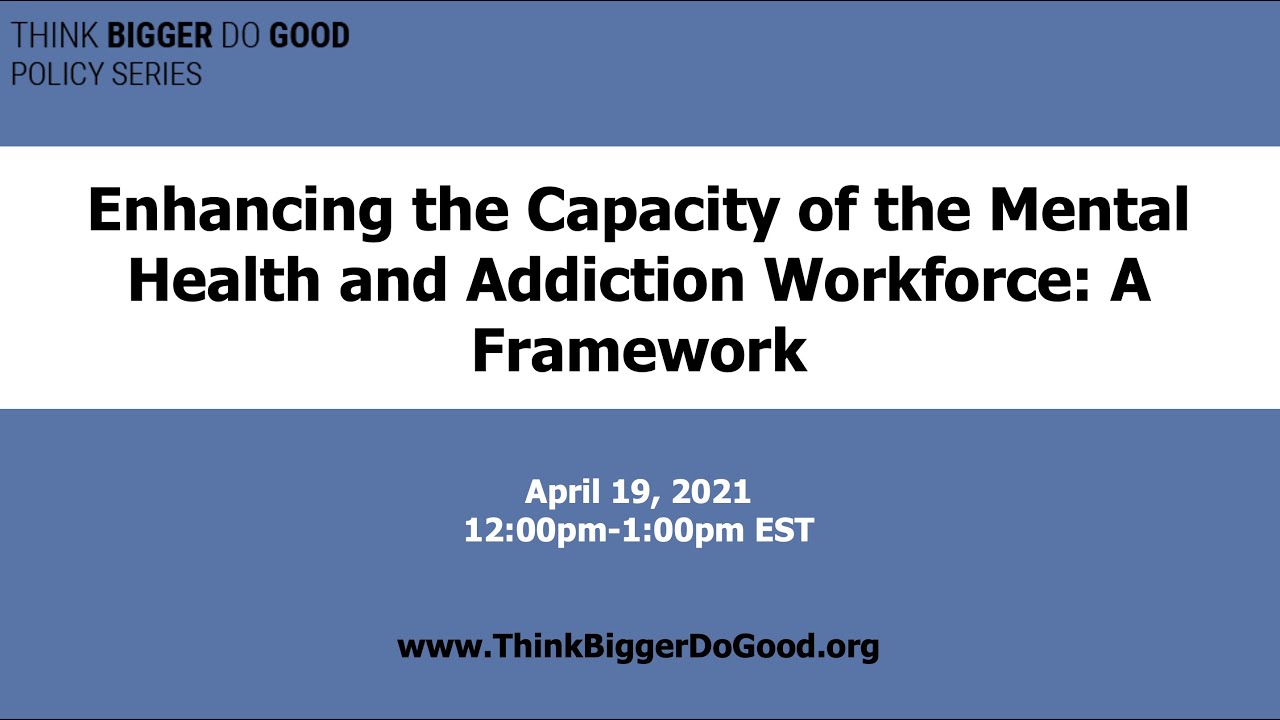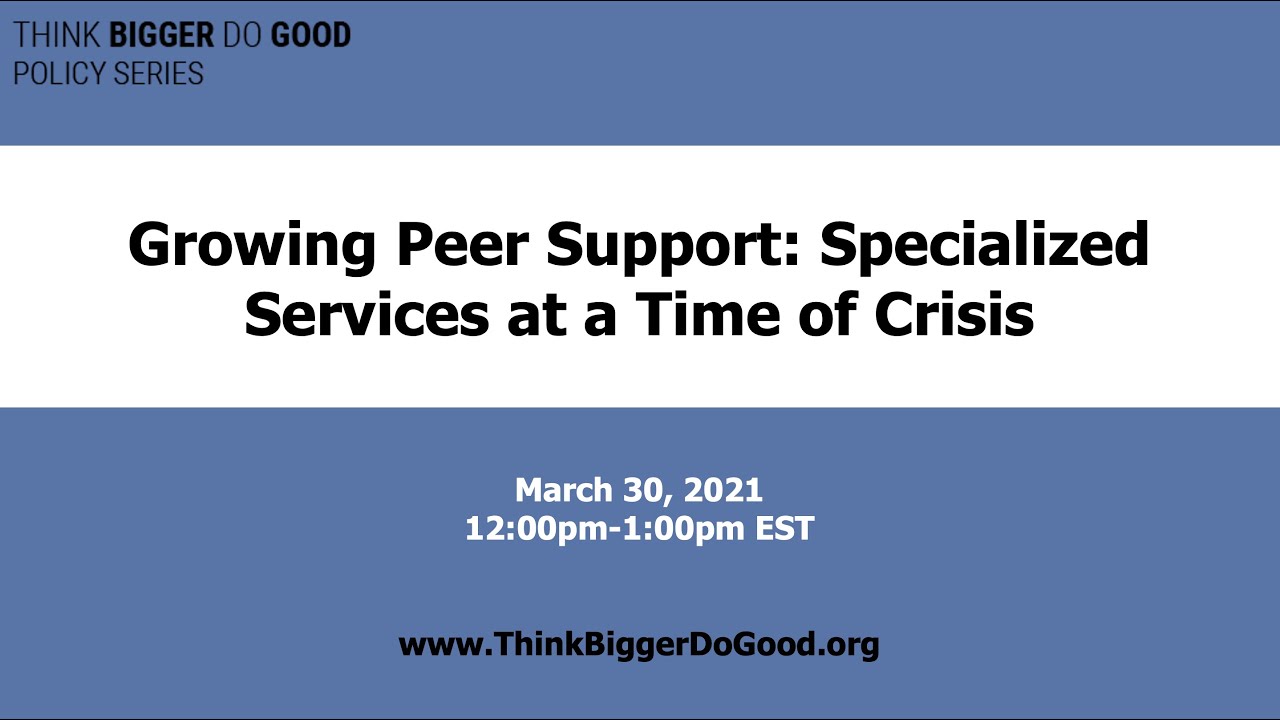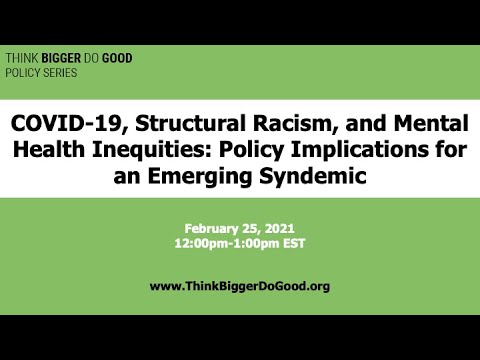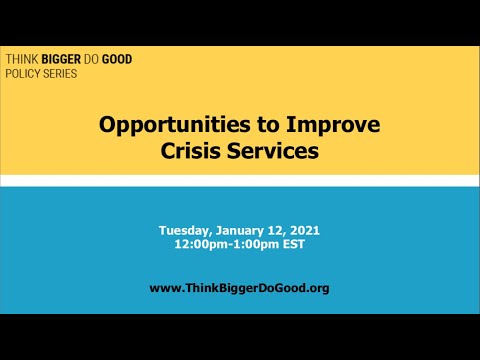Webinars
Using Markov Modeling to Understand the Dynamics of Unhoused Populations Experiencing Serious Mental Illness
The tenth Think Bigger Do Good webinar featured authors Sherry Glied, Ph.D. and Rachel Smith, MPH and was moderated by Melissa Beck, Esq. Executive Director of the Sozosei Foundation. They discussed a dynamic modeling approach that helped explain how people with serious mental illness moved between housing, shelters, and long-term unsheltered homelessness in New York City. They explained that while adding supportive housing could reduce chronic unsheltered homelessness, the impact was not one-to-one. Because people moved slowly into and out of chronic street homelessness, achieving lasting reductions required far more housing units than the number of people they aimed to help. They emphasized that homelessness must be understood as a dynamic system and that real progress required expanding housing alongside ongoing support and prevention efforts.
Read the associated paper: Using Markov Modeling to Understand the Dynamics of Unhoused Populations Experiencing Serious Mental Illness
Promoting Youth Mental Health through Equity-Centered Trauma-Informed Educational Initiatives in Schools
The ninth Think Bigger Do Good webinar featured authors Ruth Shim, M.D., M.P.H., Alex Shevrin Venet, M.Ed., and moderated by Joe Pyle, MA. They discussed how the youth mental health crisis is reaching epidemic proportions, stemming from both single and complex traumatic experiences. Since children and adolescents spend a considerable amount of time in schools, educational settings present both opportunities for and threats to youth mental health. The discussion touched on how the principles of equity-centered trauma-informed education can be applied in educational environments to enhance the mental health of students and policy recommendations aimed at prioritizing predictability, flexibility, empowerment, connection, and unconditional positive regard.
Read the associated paper: Promoting Youth Mental Health through Equity-Centered Trauma-Informed Educational Initiatives in Schools
Investing in School Mental Health: Strategies to Wisely Spend Federal and State Funding
The eighth Think Bigger Do Good webinar featured paper author Sharon Hoover, Ph.D. of the University of Maryland and Joe Pyle, M.A. of the Scattergood Foundation. They discussed how resources could be best allocated to facilitate the delivery of effective and comprehensive supports and services to children and adolescents in schools. Schools are the main delivery sites for youth mental health services. Many districts have adopted comprehensive school mental health systems (CSMHS) to provide a multitiered approach comprising mental health promotion, prevention, and intervention to students via partnerships between school and community health and behavioral health providers. COVID-19 relief funding and other new federal and state investments in school mental health have led to expansions of school mental health programming in most states. An impending federal funding cliff necessitates an examination of how to wisely invest now to achieve the greatest positive future impact on youth mental health.
Read the associated paper: Investing in School Mental Health: Strategies to Wisely Spend Federal and State Funding
Judicial Threats to Olmstead and the Americans With Disabilities Act
The seventh Think Bigger Do Good webinar held on February 21, 2024 featuring Jean Goetz Mangan, J.D. and Andrea Dennis, J.D. of the University of Georgia School of Law and moderated by Jane Mogavero, ESQ of the Patrick P. Lee Foundation.
The speakers reviewed the Olmstead decision and subsequent Supreme Court decisions that may raise questions about the determination of a central feature of the original case—care in “integrated settings”—and about which governmental entity’s interpretation should be respected when deciding whether a state has met its integration obligation. They also provided commentary on how the Supreme Court’s recent willingness to overturn precedent raises concerns about the future of this landmark case. Although a legal challenge to Olmstead is not imminent, measures should be taken to maintain and strengthen protections established by the decision.
Read the associated paper:
Judicial Threats to Olmstead and the Americans with Disabilities Act
Promoting the Mental Health of Parents and Children by Strengthening Medicaid Support for Home Visiting
The sixth Think Bigger Do Good webinar featured Elisabeth Wright Burak, M.P.P., M.S.W., Vikki Wachino, M.P.P., and Ireta Gasner moderated by Think Bigger Do Good series editor Howard Goldman, M.D., Ph.D. Panelists provided an overview of home visiting as a wholistic approach for new parents and young children and the untapped potential for Medicaid to scale and grow its reach. Evidence of home visiting benefits has accumulated across a growing number of models, including improved mental health outcomes, such as improved access to mental health services and reductions in family stress and maternal depression.
Read the associated paper:
Housing is Mental Health Care: Policy Recommendations for Scaling Housing for Individuals with Mental Illness
The fifth Think Bigger Do Good webinar held on September 29, 2021 featured Sally Luken, Founder and President of Luken Solutions and Jennifer Mathis, Director of Policy and Legal Advocacy at the Bazelon Center for Mental Health Law. The discussion was moderated by Thom Craig, Director of Mental Health Program at Peg’s Foundation. The speakers shared policy recommendations for scaling housing options at the local, state, and federal levels for individuals with mental illness.
Read the associated papers:
Policy Recommendations to Address Housing Shortages for People with Severe Mental Illness
Housing Is Mental Health Care: A Call for Medicaid Demonstration Waivers Covering Housing
Enhancing the Capacity of the Mental Health and Addiction Workforce: A Framework
The fourth Think Bigger Do Good webinar held on April 19, 2021 featured authors Benjamin F. Miller, Psy.D., and Anita Burgos, Ph.D. They discussed a new framework for the mental health and addiction workforce in the United States. The proposed framework includes three shifts that need to take place at the clinical, community, and individual levels to achieve the goal of population health. The discussion highlighted policy considerations that can reconceptualize workforce to enhance the overall capacity. The discussion was moderated by Jane Mogavero, ESQ, Executive Director of the Patrick P. Lee Foundation.
Growing Peer Support: Specialized Services at a Time of Crisis
The third Think Bigger Do Good webinar held on March 30, 2021 feature authors Kelly A. Davis and Nathaniel Z. Counts, J.D. of Mental Health America. They discussed how an investment in the peer support workforce can not only address the immediate and growing mental health and substance use needs in the U.S., but it can also help shape a future system of services rooted in empowerment, hope, connection, human rights, and lived experience. The discussion was moderated by Tracy A. Sawicki, Executive Director of the Peter and Elizabeth Tower Foundation.
COVID 19, Structural Racism, and Mental Health Inequities
The second Think Bigger Do Good webinar was held on February 25, 2021 and featured series authors Ruth Shim, M.D., M.P.H. and Steven Starks, M.D., F.A.P.A. They discussed the complex interaction between the COVID-19 pandemic, structural racism, and mental health inequities which have led to devastating health, economic, and social consequences. The intersection of these three conditions, present numerous policy challenges – and opportunities. The discussion was moderated by Joe Pyle, MA President of the Thomas Scattergood Behavioral Health Foundation.
Opportunities to Improve Crisis Services
The first Think Bigger Do Good webinar was held on January 12, 2021 featuring series authors Mark Munetz, M.D. and Michael Hogan, Ph.D. and Thom Craig, M.P.A., series co-funder. The panelists discussed the current spectrum of crisis services and opportunities to improve the system. The discussion was moderated by Rick Kellar, M.B.A. President of Peg’s Foundation.


